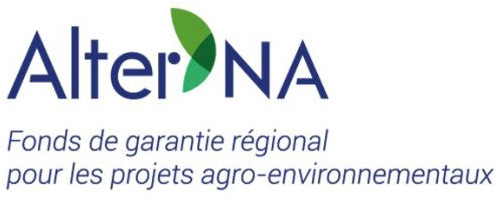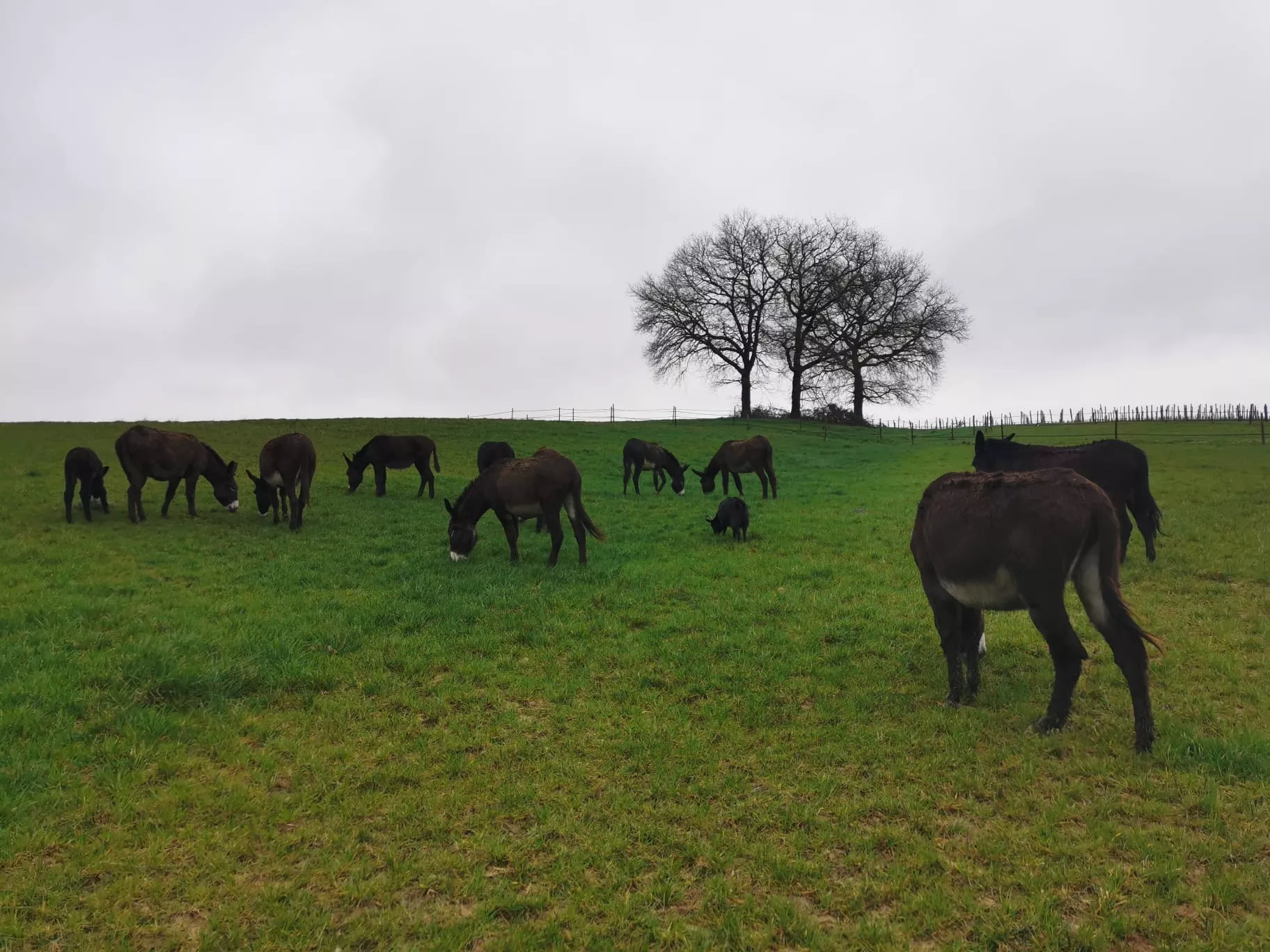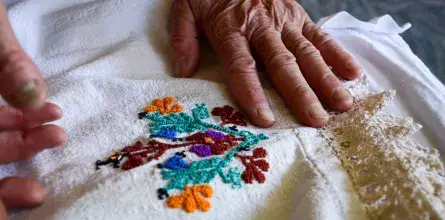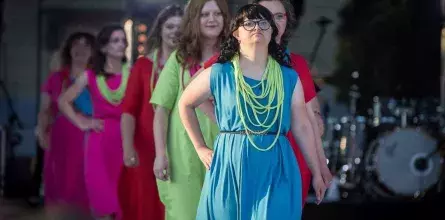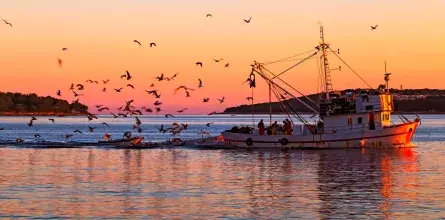Thanks to the Alter’NA EAFRD guarantee instrument, Héloïse Brunel and her husband Olivier were able to set up as first-generation farmers, after professional retraining. Now, they are growing their small business in the town of Caubon-Saint-Sauveur in Lot-et-Garonne. With organic certification for all its products (milk and grapes – soon to become wine), the fledgling company is developing nicely.
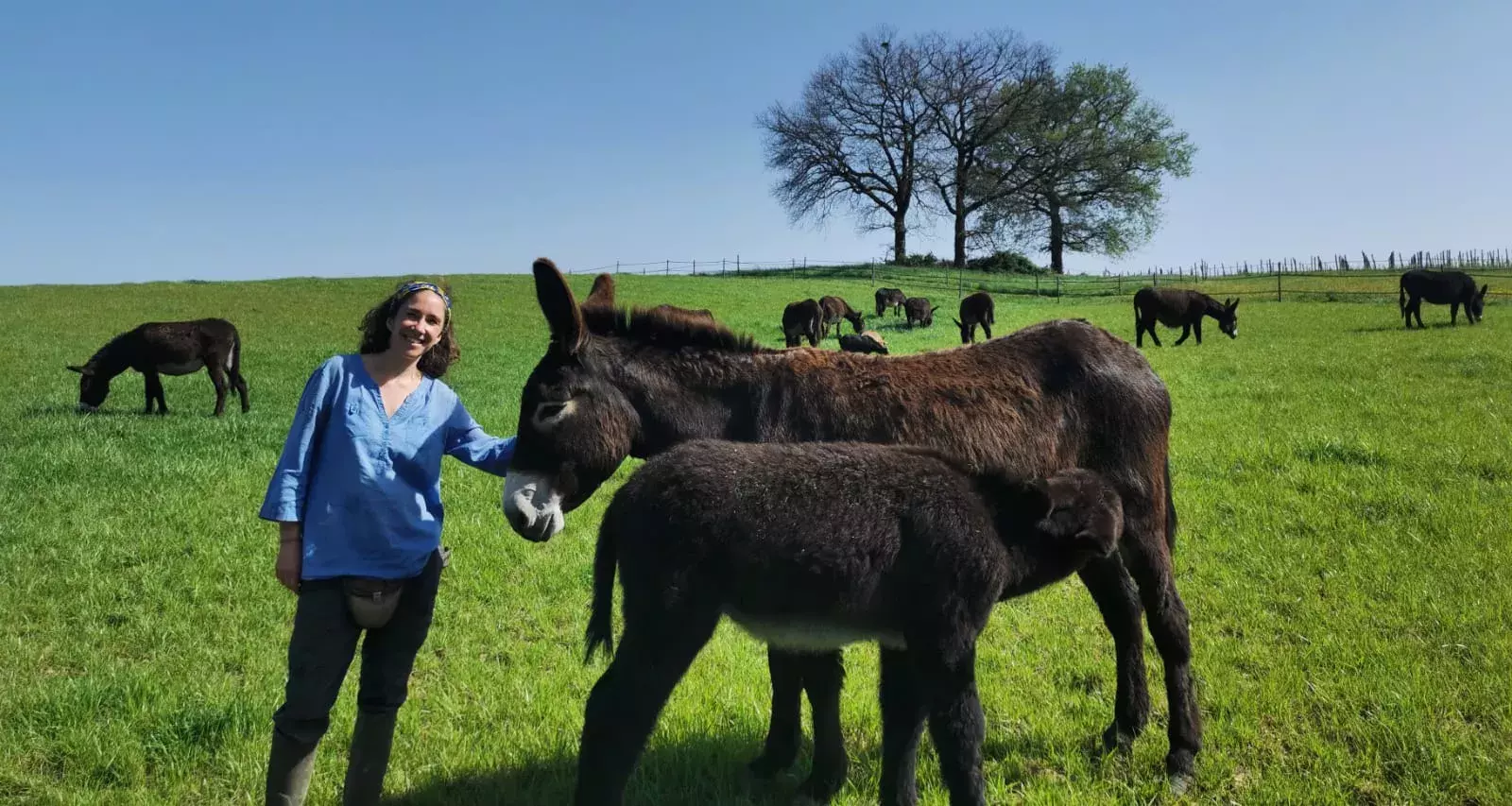
Héloïse Brunel with her milk-producing Pyrenean donkeys, a protected local breed
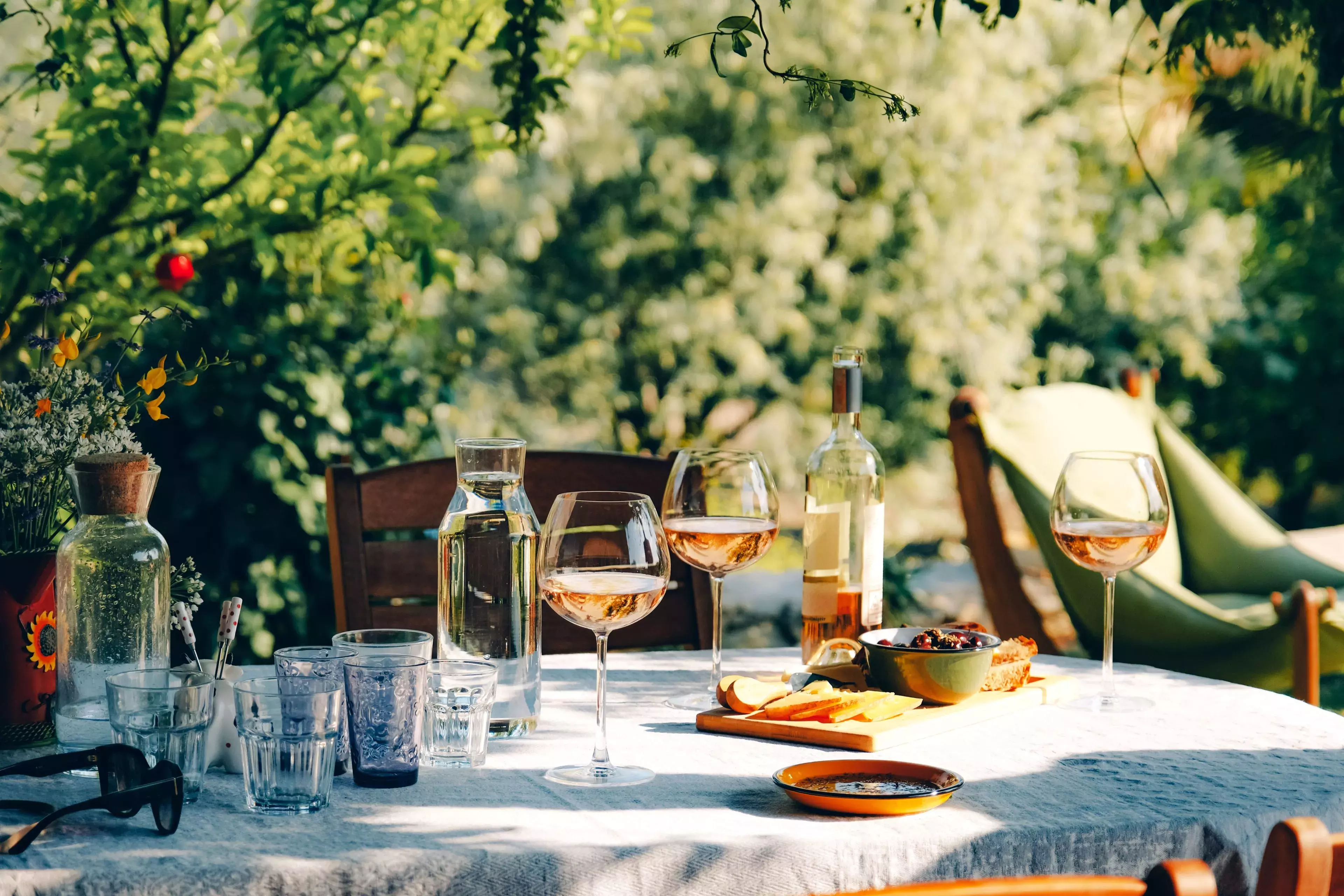
After studying biology and ethology (animal behaviour), becoming a farmer was the obvious choice for Brunel. The 41-year-old former school teacher made a return to her roots in 2019, buying a farm needing work that she called Des vignes et des ânes (Wine and Donkeys) in Caubon-Saint-Sauveur in the French department of Lot-et-Garonne. And with her husband Olivier working as a wine engineer and oenologist, the choice to plant a vineyard on the property as well was a simple one. “Olivier and I both have roots in farming, and have wanted to go into agriculture for many years. Combining wine-making and raising animals has let us merge our interests and strengths, while also building a business with multiple products, which is a safer bet,” Brunel explains.
Officially established as a farmer since 2022 after earning a professional certificate in farm management (brevet professionnel de responsable d’exploitation agricole – BPREA) and training in soap-making, she now keeps a herd of Pyrenean donkeys, a protected local breed, on more than 22 acres of pasture. The 12 mares produce milk, which she uses to make natural, cold process soaps from vegetable fat and 20% fresh donkey milk from the farm. Eco-friendly, cost-saving, natural and gentle on the skin, the soap is a product that embodies values she wants to promote. Her husband, who is also her business partner, maintains over seven acres of grapevines, growing grapes that the couple will vinify on site after the first harvest in 2024.
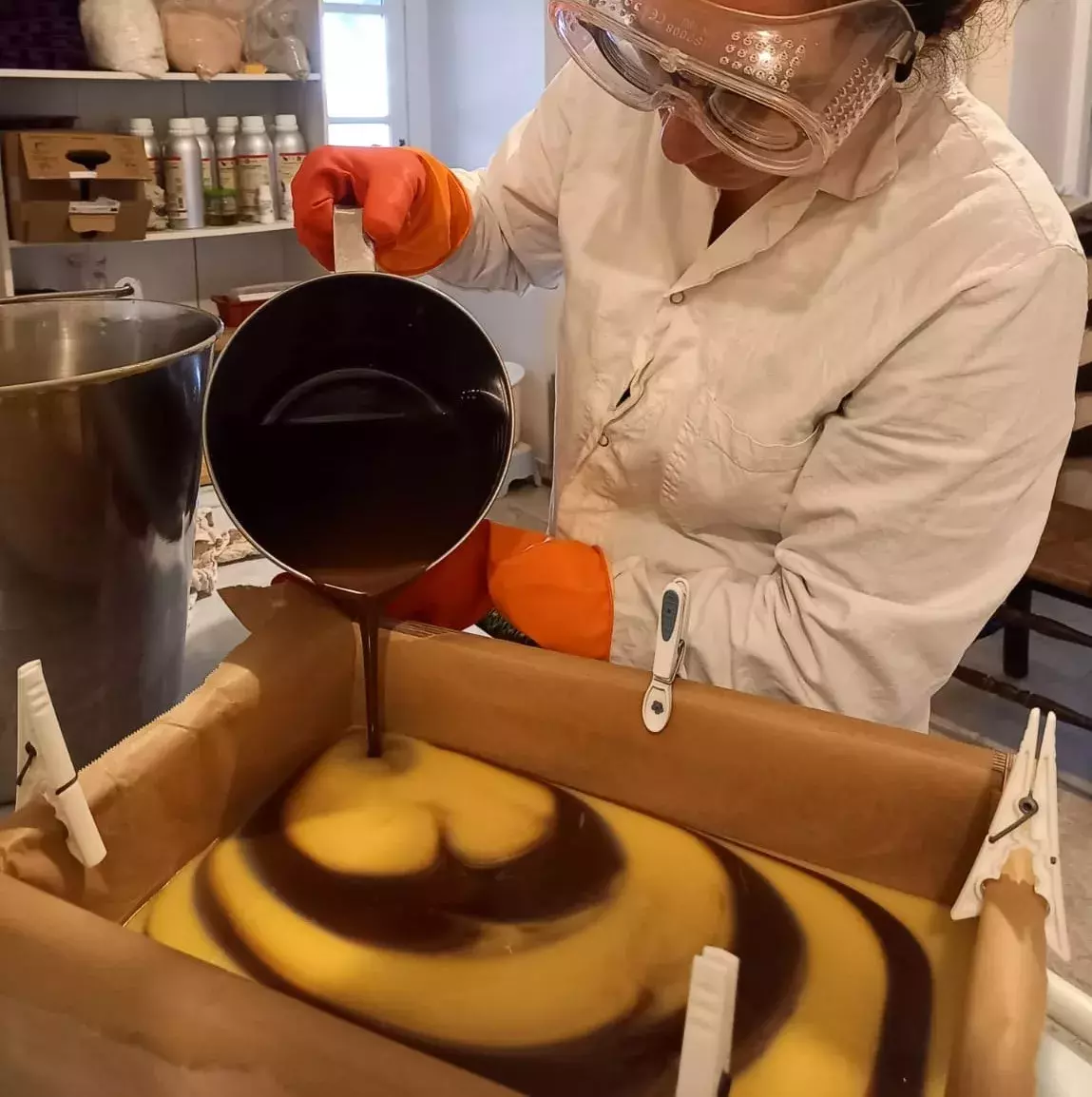
Using cold process saponification, Brunel makes her soaps out of vegetable fat and 20% fresh donkey milk from the farm
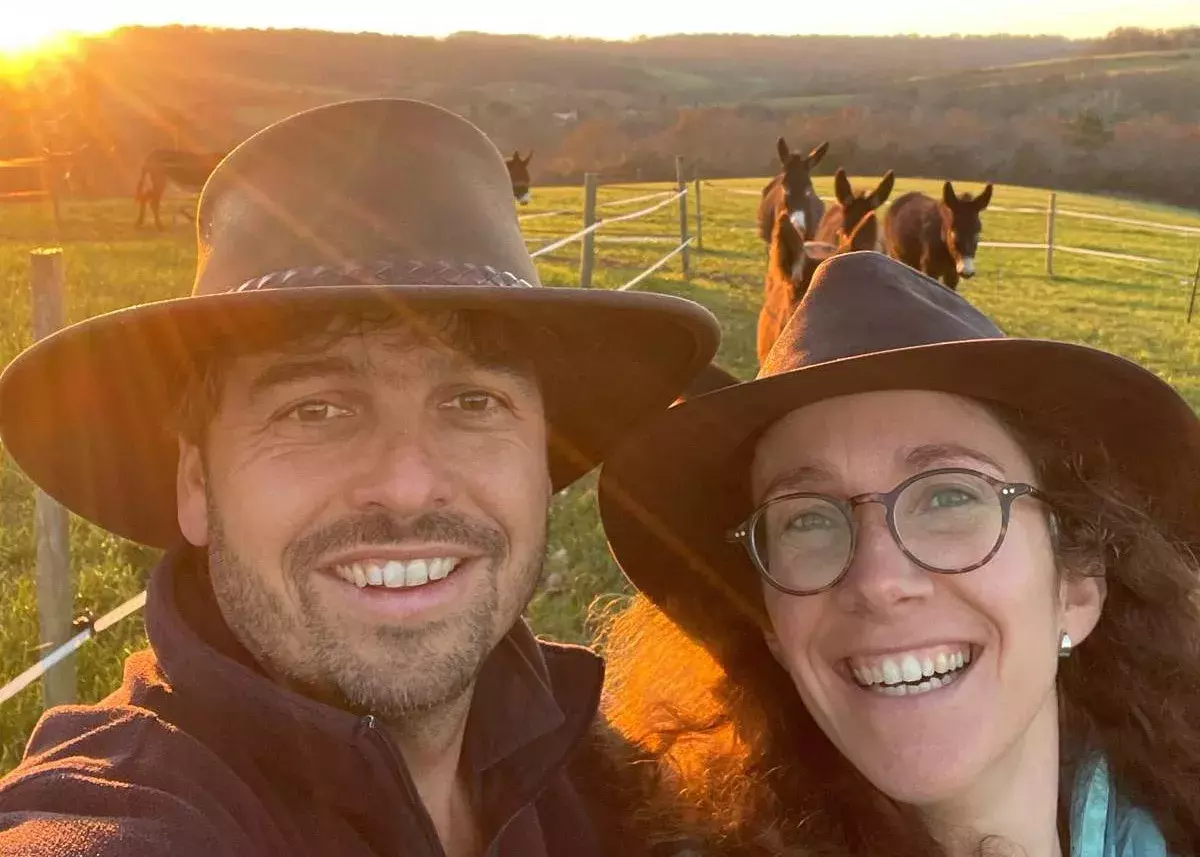
Despite the difficult environment, Héloïse and Olivier were determined to find their farm to promote sustainable agriculture with short supply chains
Everything the farm produces is certified organic (milk, and the grapes that will soon be made into wine). We’ve had the business for two years now. The donkey herd has grown and soap sales have increased, with excellent feedback from customers. 2024 is a big year for us, because at the end of the summer we’ll have our first harvest and make our first wine
she says.
The right solution for the job
To realise her goals, the young farmer took out several loans backed from Alter’NA guarantee fund, totalling €246 000. The loans were provided by Crédit Agricole d’Aquitaine, where she already had an account. “It was the bank that offered the best deal for our situation,” Brunel adds. “The advisors have always been easy to reach and eager to help, giving good advice with fast response times. With these loans we could afford to plant the vineyard, and buy wine-making equipment, the wine cellar, our herd, pens and stables, and the soap-making workshop.”
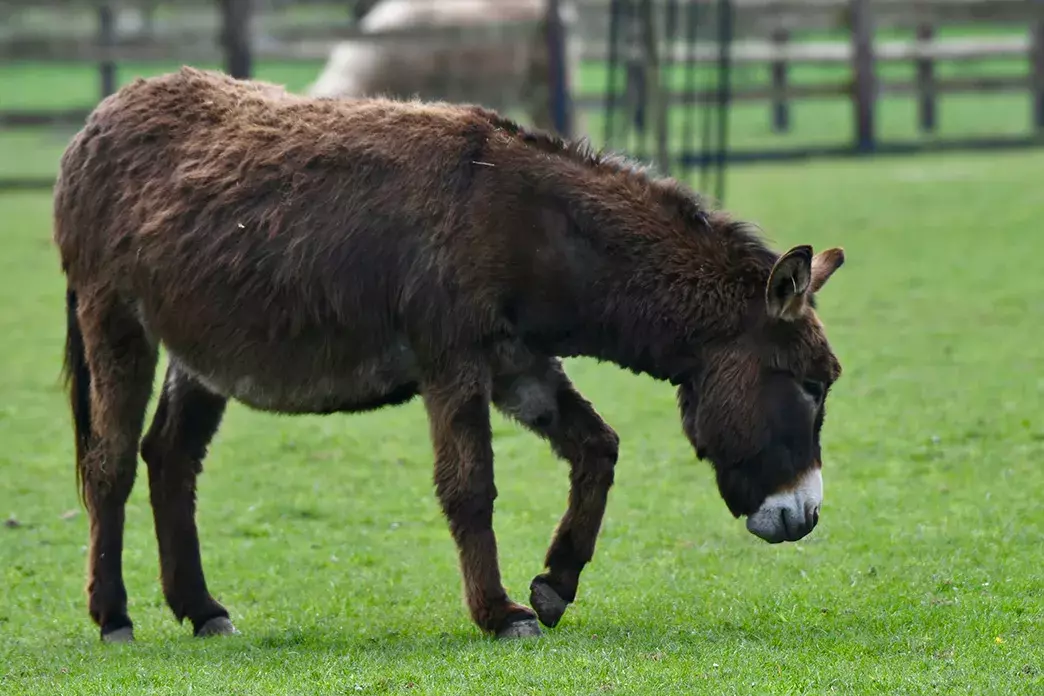
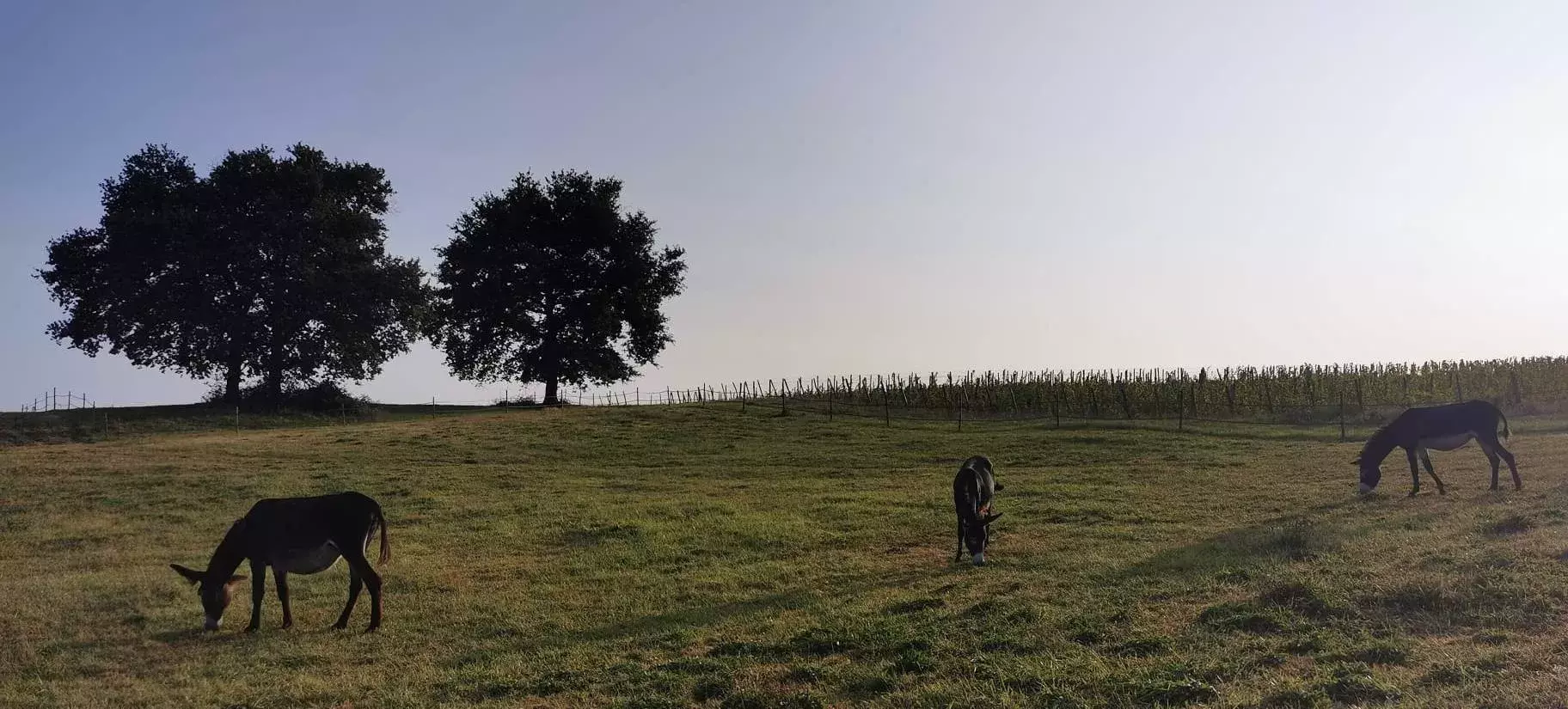
“Alter’NA is a fantastic programme created by the regional government. Setting up a business is expensive. This guarantee provides real support by helping people get a loan,” Brunel explains.
When applying for the business loan, several factors worked in the couple’s favour. First, Olivier kept his position as an employee because the revenues of soap making were not yet sufficient to generate an income essential to the family's life. Second, they didn’t have capital to contribute, but they had assets: a farm purchased in 2019 with a personal loan and half of the land, as well as 15 additional acres purchased later thanks to credits taken out in the name of the company. That meant the whole 30-acre property was held by a single person, boosting its valuation.
“Héloïse and Olivier are what we in the agricultural sector call ‘nouveaux ruraux’ – recently settled residents of rural communities that come from the city, and move to places where they don’t have family. The demand for Alter’NA loans among these farmers is high, despite the particular hurdles this category of borrower faces when getting started,” says Pierrick Larrivet of Crédit Agricole d’Aquitaine’s department for agricultural expertise and development at its Agen regional office. “Nouveaux ruraux still account for half of Crédit Agricole’s new business loans.”
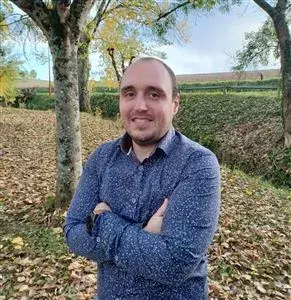
In light of the protests that affected the agriculture industry at the beginning of the year, Pierrick Larrivet sees reason to create an Alter’NA 2 scheme to continue supporting sustainable business projects while helping farms to remain viable going concerns.
Tasked with helping these farmers find their feet, with the assistance of advisors and new business account managers, Larrivet has a supply of 400 loans guaranteed by Alter’NA, totalling €60 million for the area covered by his regional office. “In a way, the guarantee instrument helps address a major issue in French agriculture: how to attract the next generation. It gives new farmers a free guarantee and a preferential interest rate” Larrivet points out.
Off to a promising start
The milk and soap production has helped support the wine-making side of the business, as those sales could get going quickly, while for wine, it takes 2 years from planting to start harvesting and the following year to start selling the first bottles.
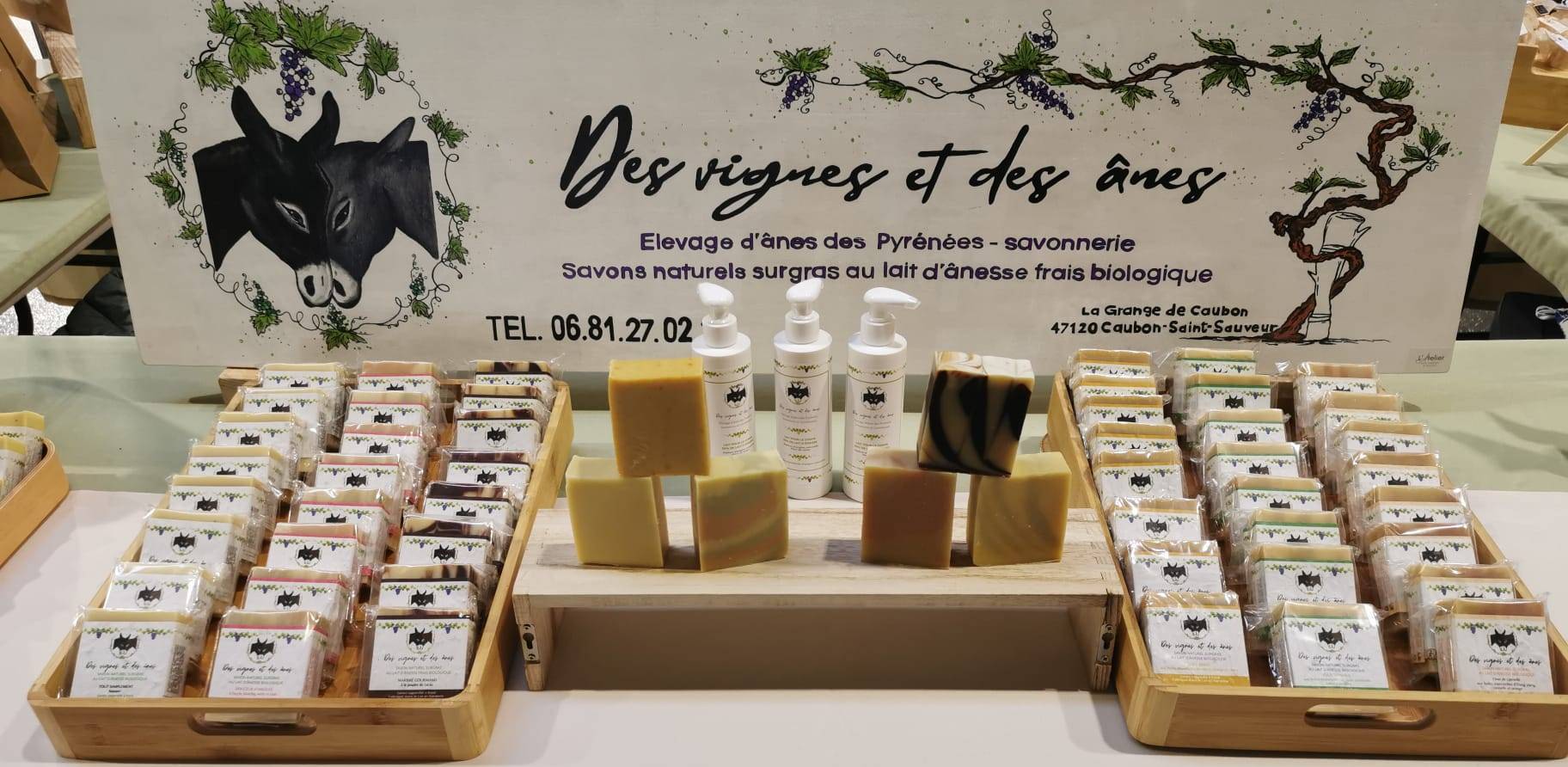
Olive oil, coconut oil, shea butter and cocoa butter are used to create a range of soaps. Enriched with donkey milk, they boast natural ingredients for softer skin.
Brunel uses short supply chains and direct sales, with one shop on the farm and another online. She’s also a member of Fermes de Garonne, a farmers’ association that has opened a store in Marmande, and sells her soaps at neighbouring markets and in a dozen other shops.
“For the moment, we can make our loan payments from the milk and soap production, as envisaged in the feasibility study for our farm. These sales are rising, and we can begin selling wine next year. From then on, we’ll be able to start turning a profit, little by little,” she explains.
Although they encountered no problems in setting up their business, the couple says they were surprised by the “mountain of work” there was to do, both on the farm and on the administrative side of things. “We had to be patient and organised, and know when to ask for help and advice. And not lose that touch of madness you need to keep going and not give up,” Brunel says. To cope with periods of high workload, Héloïse and Olivier sometimes turn to freelance help. They also plan to make use of the simplified employer licence for farmers (titre emploi simplifié agricole – TESA), created to help very small farms and agricultural microenterprises employ people under very short-term contracts, especially for grape harvests.
Alter’NA – €41 million for a shift to ecological farming
Alter’NA, a financial instrument managed by the European Investment Fund (EIF), is an additional tool promoting the transition to ecological farming in Nouvelle-Aquitaine, one of the first regions in France to do this. It allowed agriculture players to invest in systemic farming projects, such as building eco-friendly greenhouses to grow fruit and vegetables, creating short supply chains, and adding value through workshops on farm-based processing and marketing, working with organic farm products, and other activities.
Alter’NA was endowed with €41 million from the Nouvelle-Aquitaine region, the European Agricultural Fund for Rural Development (EAFRD) and the European Fund for Strategic Investments (EFSI, Juncker Plan). To learn more about this financial instrument, watch the film Tomatec on the Alter’NA platform and visit the fi-compass website.
